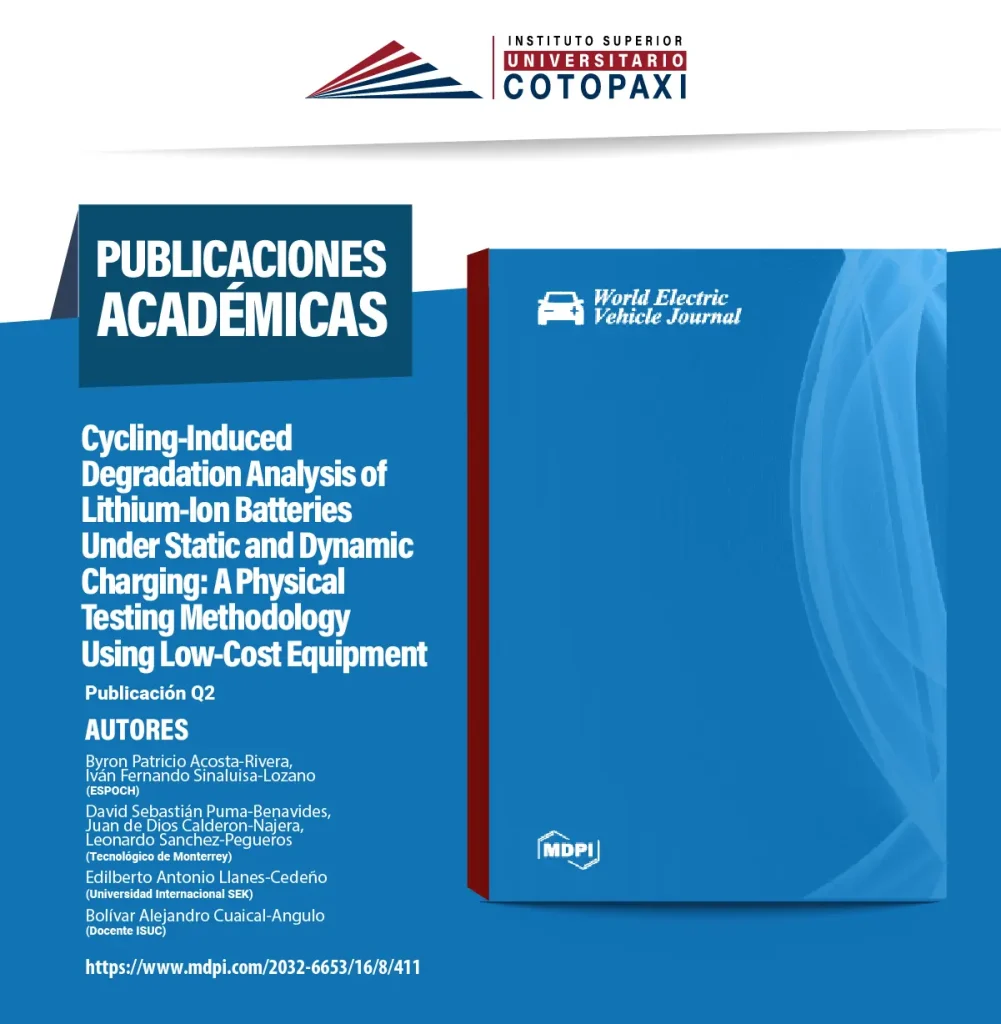
Cycling-Induced Degradation Analysis of Lithium-Ion Batteries Under Static and Dynamic Charging: A Physical Testing Methodology Using Low-Cost Equipment
Autores:
Byron Patricio Acosta-Rivera, Iván Fernando Sinaluisa-Lozano (ESPOCH).
David Sebastián Puma-Benavides, Juan de Dios Calderon-Najera, Leonardo Sanchez-Pegueros (Tecnológico de Monterrey).
Edilberto Antonio Llanes-Cedeño (Universidad Internacional SEK).
Bolívar Alejandro Cuaical-Angulo (Docente ISUC).
Publicación Q2
Given the rising importance of cost-effective solutions in battery research, this study employs an accessible testing approach using low-cost, sensor-equipped platforms that enable broader research and educational applications. It presents a comparative evaluation of lithium-ion battery degradation under two charging strategies: static charging (constant current at 1.2 A) and dynamic charging (stepped current from 400 mA to 800 mA) over 200 charge–discharge cycles. A custom-built, low-cost test platform based on an ESP32 microcontroller was developed to provide real-time monitoring of voltage, current, temperature, and internal resistance, with automated control and cloud-based data logging. The results indicate that static charging provides greater voltage stability and a lower increase in internal resistance (9.3%) compared to dynamic charging (30.17%), suggesting reduced electrochemical stress. Discharge time decreased for both strategies, by 6.25% under static charging and 18.46% under dynamic charging, highlighting capacity fade and aging effects. Internal resistance emerged as a reliable indicator of degradation, closely correlating with reduced runtime. These findings underscore the importance of selecting charging profiles based on specific application needs, as dynamic charging, while offering potential thermal benefits, may accelerate battery aging. Furthermore, the low-cost testing platform proved effective for long-term evaluation and degradation analysis, offering an accessible alternative to commercial battery cyclers. The insights gained contribute to the development of adaptive battery management systems that optimize performance, lifespan, and safety in electric vehicle applications
Ubicación: https://www.mdpi.com/2032-6653/16/8/411
